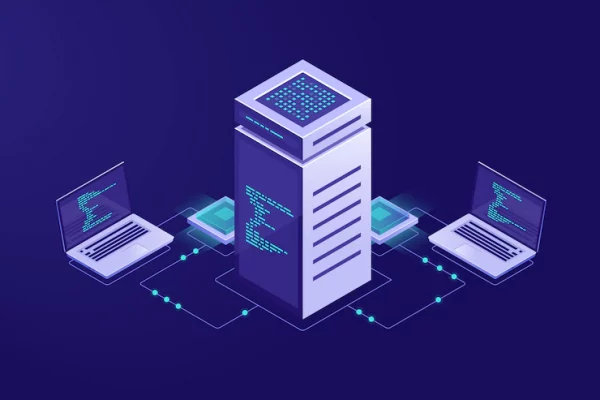Identity Security
The Right Data Access at the Right Time – Securely
What is Identity Security?
Identity security is the process of protecting personal information from being stolen or misused. It involves controlling access to personal data, maintaining the confidentiality and integrity of the data, and ensuring that only authorized personnel can access it. Identity security measures can include requiring employees to use strong passwords, implementing two-factor authentication, and encrypting sensitive information. Additionally, organizations should have a clear policy in place regarding the use, storage, and disposal of personal data. By taking these steps, organizations can help protect their customers’ personal information and ensure that their identities remain secure.
What Are Your Identity Security Challenges?
Every organization requires technology to do business.
And you can’t use that tech without identity security.
Identity security is an important issue in today’s digital world. As the number of online threats continues to increase, it’s important for individuals and organizations to be aware of the security challenges they may face. Here are some of the key identity security challenges:

1. Data Breaches: Data breaches have become increasingly common, and they can have devastating consequences. Every time personal information is stolen or exposed, it raises the risk of identity theft and other malicious activities.
2. Phishing Attacks: Phishing attacks use email and other forms of communication to try and get victims to reveal sensitive information. They can be extremely difficult to detect, and they can lead to the theft of personal data or even financial losses.
3. Social Engineering: Social engineering is a type of attack that attempts to manipulate people into giving up sensitive information. Criminals use a variety of techniques, ranging from impersonation to emotional manipulation, to trick people into revealing private information.
4. Weak Passwords: Weak passwords are one of the most common security problems. If a password is too short or easy to guess, it can make it easier for criminals to break into an account or system.
5. Malware: Malware is malicious software designed to damage computers and networks. It can be used to steal information, encrypt files, and spread other infections.
Identity security can seem overwhelming, but there are steps you can take to protect yourself. Be sure to use strong passwords, keep your systems and software up-to-date, and use two-factor authentication whenever possible. Additionally, it’s important to be aware of the potential threats and to take steps to protect yourself.

Identity attackers almost always start by compromising credentials.
From there, they move to other levels of privileged access escalation until they reach their goal – your data.
Identity security is the protection of personal information and the prevention of identity theft. It involves the use of various methods such as authentication, encryption, two-factor authentication, and biometrics to secure access to data and resources. Identity security also includes monitoring of digital activities, like location tracking, and the use of identity management solutions to ensure that only authorized users have access to sensitive data. It is an essential part of cybersecurity and an important part of keeping individuals and organizations safe from cyber threats.
Identity security
Protects organizations from cyber threats that arise when they provide tech access to geographically dispersed teams accessing data in the cloud. It helps to securely authenticate, centrally control and audit how applications.
Every organization requires technology to do business. And you can’t use that tech without identity security.
Identity security (also called identity governance and identity management) protects organizations from cyber threats that arise when they provide tech access to geographically dispersed teams accessing data in the cloud. It helps to securely authenticate, centrally control and audit how applications, DevOps and automation tools use secrets and privileged credentials to access databases, cloud environments and other sensitive resources. Protecting your business against the potential cyber risks that target digital identities is imperative.


Identity Security – Vital but Vulnerable
It seems simple: users must be granted access to corporate systems and applications to do their jobs.
And your customers need access to web-facing applications to interact with your organization.
Identity is a vital function to help manage user interactions and prevent cybersecurity incidents through the abuse of credentials.
Cybercriminals are becoming increasingly skilled at exploiting system vulnerabilities and utilizing social engineering tactics as a path to breach networks and gain access to critical information. These risks accelerate as organizations pivot to the cloud and invest in digital transformation initiatives.
Identity attackers almost always start by compromising credentials. From there, they move to other levels of privileged access escalation until they reach their goal – your data.
Ask Yourself

Does your organization continue to struggle with providing the right access to the right resources at the right time?

With expanding business demands, how can you reduce the risk associated with complex identity implementation projects?

Are your identity challenges getting better or worse?
How AVIH Solves the Identity Security Problem?
AVIH (Authentication, Verification, and Identity Hub) is a revolutionary identity and security solution designed to help organizations protect their digital identities and data assets. AVIH provides a comprehensive set of tools to ensure the security of digital identities, including authentication, authorization, identity verification, and identity management.
Authentication is the process of verifying that the user is who they claim to be. AVIH provides an authentication system that uses a combination of biometrics, passwords, and two-factor authentication to ensure the user is who they claim to be. This ensures that only authorized users can access the organization’s systems.
Authorization is the process of verifying that the user has the necessary permissions to access the organization’s systems. AVIH provides a flexible authorization system that can be tailored to the organization’s needs, allowing it to control who can access which systems and data.
Identity verification is the process of verifying that the user is the person that they claim to be. AVIH provides an identity verification system that uses a combination of biometrics, identity documents, and other information to verify the user’s identity. This ensures that only authorized users can access the organization’s systems.
Finally, identity management is the process of managing the identities of users. AVIH provides an identity management system that allows organizations to easily create, manage, and store user identities. This ensures that user identities are kept up-to-date and secure.
Overall, AVIH provides a comprehensive solution to the identity security problem. It provides organizations with the tools they need to authenticate, authorize, verify, and manage users in a secure and efficient manner.
Your organization may have invested heavily in identity security tools, but too often, these initiatives are technology- or problem-centric, leading to a piecemeal set of “solutions” that can create chaos in the operations center.
Optiv drives an integrated strategic view of the challenge. You’ll leverage existing investments in migrating your organization to a more strategic identity footing. We’ll collaborate to create a tailored solution supporting your business growth and reducing risk.

